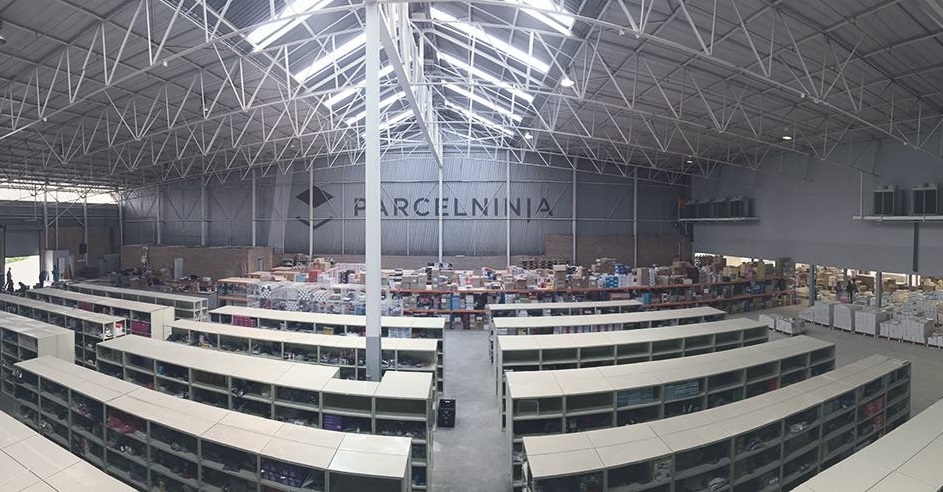We don’t get many of them, so when an African startup gets acquired there is a good reason to celebrate. Especially so in the case of South Africa’s Parcelninja, which put in the hard miles prior to being acquired by the JSE-listed logistics company Imperial in February.
Founded in 2013 by Justin Drennan, Ryan Drennan, and Terence Murphy, Parcelninja is an e-commerce enabler that offers South African online shops an affordable outsourcing solution for all their fulfilment needs.
The startup’s platform integrates with most existing e-commerce engines, offering smart product warehousing, picking and packing, courier optimisation, and real-time reporting. Disrupt Africa reported in February it had been acquired by Imperial, a provider of logistics and market access solutions. The JSE-listed company said Parcelninja was a logical fit for Imperial and would help the company strengthen its digital offerings.
Speaking to the latest edition of Disrupt Podcast, Justin Drennan, who has a strong track record in the South African e-commerce space, said Parcelninja had sold 60 per cent of its business to Imperial, with all remaining shareholders to exit over the next three years or so. The team, however, will remain in place.
“So it is business as usual within the business,” he said.
The Parcelninja team and Imperial have been interacting for a few years, though appetite for a deal increased in recent times as Parcelninja has been particularly focusing on its last mile delivery service for spaza shops. The valuation, though undisclosed, was arrived at based on a combination of profits and revenues.
“The opportunity to exit at greater value is there if you are willing to do the work and stay on a bit longer,” said Drennan.
“It has been a long road. It wasn’t like we were looking to exit, but the deal with Imperial was too good to refuse. We see it as a long term partnership, as an opportunity to add value to the business. There are so many components a large multinational can help us with, and we are already seeing the benefits.”
Parcelninja has long been active in what post-COVID-19 is a hot sector, with traditional businesses not geared towards deliveries. Drennan said the team always knew it would just be a matter of time before it became very relevant.
“We wanted to play ahead of the market and in the right stream,” he said.
With this in mind, the startup built out warehousing and distribution capabilities. Though the business grew substantially during the COVID-19 pandemic, it has been self-sufficient without the need for any additional external funding for some time.
“We tried to build the business in a more conservative way,” Drennan said. “We’ve always had a mentality of frugality in our business. If you don’t need to spend money on something, don’t.”
He also thinks Parcelninja hired the right people and built a culture where they looked after staff in a family sort of way, helping the business grow properly. Yet external factors also played a big role in the deal getting done, with the attitude from multinationals towards acquiring startups changing over the last few years.
“A few years ago large multinationals weren’t in a space to transact with small businesses,” said Drennan, citing among other things differences over valuations and how to conduct them. This has changed now, with Imperial itself having launched an investment fund.
Parcelninja made use of a third party to interact with Imperial in getting the deal over the line, partly to allow the founders to focus on running their growing business, but also to provide it with valuable help and expertise in finalising the acquisition.
“If you are looking to sell a business you need to get the pros involved. We are not experts at selling businesses,” Drennan said.
“When we got that third party involved, everyone knew that we wanted to do a deal. It was a good signal of our intention.”
In fact, he said working with the third party this was the best thing they could have done, as it also served to improve Parcelninja as a business regardless of whether or not the deal had been completed.
“To get into the right position is critical, from a business process and compliance perspective, and with your business model. It is a laborious process, and you need to make sure you have your t’s crossed and your i’s dotted,” said Drennan.
“You can start going through this process, but you might not end up selling your business, which is fine. Going through the process has lots of benefits, things can come out of it which are unintended consequences.”
—
The latest episode of Disrupt Podcast is available now, featuring in-depth interviews with Drennan as well as three Nigerian fintech founders in what is a bumper double edition.
You can listen on Soundcloud, Spotify, Apple Podcasts, and all other podcasting platforms.


